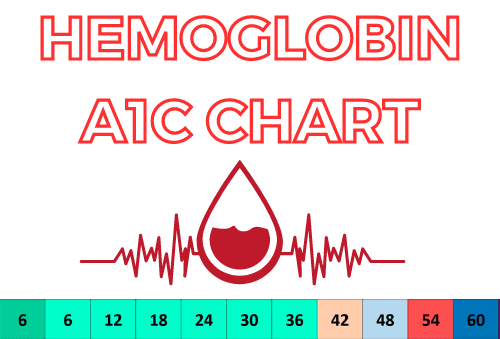Managing Dry Mouth in People with Diabetes
- Dry mouth is a common symptom in people with diabetes and can have a number of causes.
- Other health problems can be exacerbated by dry mouth in those with diabetes.
- This article lists tips to help support the body’s natural saliva production.
- Choosing the right oral health care products can also relieve dry mouth.
You know that sticky, dry feeling in your mouth that just doesn’t go away, even after drinking a glass of water?
If you live with diabetes, that sensation might be more than just dehydration. It could be your body’s way of telling you that something’s out of balance.
Dry mouth, or xerostomia, affects a lot of people, but it’s especially common (and frustrating) for those managing their blood sugar levels every day. And while it may seem like a minor inconvenience, ignoring it can lead to further issues with your teeth, gums, and overall comfort (Cleveland Clinic).
But there’s no need to worry. You can absolutely find relief and protect your smile in the process. Let’s explore more about the tips and solutions in this post.
What Causes Dry Mouth in People with Diabetes?
Let’s start with the basics.
When your blood sugar levels are high, your body pulls fluid from tissues to flush out the excess glucose. Less fluid overall means less saliva. And that’s when things start to feel off.
But dehydration isn’t the only trigger.
Certain medications, such as those used to treat nerve pain or high blood pressure, can also reduce saliva production causing dry mouth in people with diabetes. And if you’ve been living with diabetes for a while, you might already know that nerve damage (neuropathy) can sometimes interfere with how your salivary glands function.
Add stress, processed foods, and inconsistent hydration, and your mouth starts feeling like a desert more often than you’d like.
Learn more: How diabetes affects your everyday health
Why Dry Mouth Hits Harder When You Have Diabetes
Saliva isn’t only there to keep your mouth moist. It helps fight off bacteria, keeps acids in check, and supports healing when your gums get irritated or cut.
When you’re constantly running dry:
- Cavities form faster because there’s less protection from acid and food debris.
- Gums become inflamed and may bleed more easily.
- Oral infections, such as thrush or ulcers, become more prevalent.
- You might struggle to chew or speak comfortably, especially in social settings.
If your body already has a harder time healing or fighting infection due to diabetes, these problems can snowball faster than they would for someone without it.
Now the question is, is there relief?
Let’s take a closer look.
What You Can Do to Feel Better Day to Day
Managing dry mouth focuses on knowing the underlying mechanisms and making informed choices that support your body’s natural saliva production.
Here’s what research and clinical experience suggest can make a tangible difference:
1. Stay Ahead of Thirst
Thirst is actually a delayed signal. By the time you feel it, your body has already begun experiencing dehydration at the cellular level. For people with diabetes, this delay can be more pronounced due to fluctuating blood glucose. The best advice is to:
- Keep a water bottle nearby to hydrate consistently throughout the day.
- Sip small amounts often to prevent dryness before it starts.
- Avoid waiting until you’re thirsty, especially if you have diabetes.
2. Use Xylitol-Based Gum or Lozenges
Xylitol actively reduces the population of Streptococcus mutans. It is the bacteria most responsible for cavities, and it helps trigger saliva flow without affecting blood sugar. Look for products with xylitol listed as the first ingredient. Then, use them after meals or when dryness occurs (such as during long conversations or after taking medication).
3. Optimize Your Sleep Environment
Nighttime mouth breathing, especially in people with diabetes or sleep apnea, significantly worsens xerostomia. A cool mist humidifier can counteract this by moderating humidity levels. So, if you often wake up with a dry tongue or sore throat, this adjustment alone can offer noticeable relief.
Choosing Oral Care Products That Actually Help
If your mouth feels like it’s on fire after brushing, that’s a red flag.
Many popular products on shelves contain sodium lauryl sulfate (SLS), artificial sweeteners, and strong minty flavors that can irritate already sensitive mouths. They can even worsen oral health issues like gum disease. Instead, you should try something gentle, clean, and made for dry mouth relief.
It’s best to switch to oral care products specifically designed for sensitive users. In fact, many people living with diabetes have found comfort in using a non-fluoride toothpaste made with hydroxyapatite. This natural mineral helps strengthen enamel without the sting of fluoride.
Look for:
- Toothpastes and rinses with xylitol or aloe vera
- Products that are SLS-free, dye-free, and non-abrasive
- Mouth sprays or gels explicitly made for dry mouth symptoms
When Dry Mouth Means Something More Serious
Now, if a dry mouth occurs occasionally in people with diabetes, it may be due to dehydration or stress. However, if it persists and begins to impact your mood, sleep, or appetite, it may be indicative of a deeper issue.
Listen to your body if you notice:
- Your tongue feels sore, coated, or constantly cracked
- You’re dealing with frequent bad breath (even after brushing)
- Cavities seem to appear more often than before
- You feel like you’re always thirsty, even after drinking
These could be signs that your medications need a closer look. Either way, discuss it with your doctor and dentist. The earlier you catch these signals, the easier they are to manage.
You Deserve a Comfortable, Confident Smile
Managing dry mouth is part of the bigger picture of living well with diabetes. And like everything else on this journey, it starts with small steps.
You don’t have to suffer through cracked lips or sleepless nights because your mouth feels like sandpaper. You can find real relief with simple changes like switching to non-fluoride toothpaste or avoiding drying ingredients.
If you have any symptoms or health-related concerns about dry mouth, don’t hesitate to contact your dental specialist.








Leave a Reply